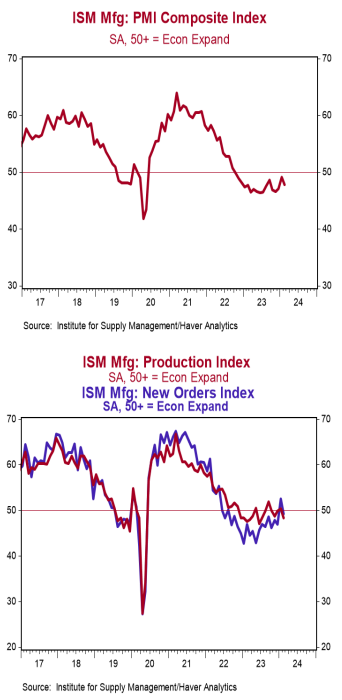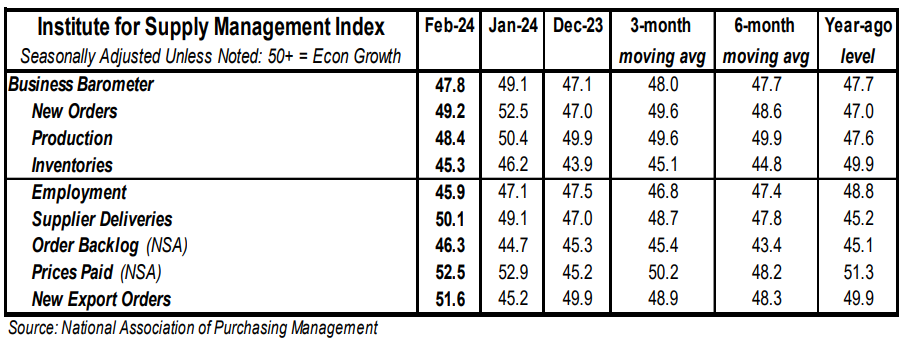- The ISM Manufacturing Index declined to 47.8 in February, lagging the consensus expected 49.5. (Levels higher than 50 signal expansion; levels below 50 signal contraction.)
- The major measures of activity were mostly lower in February. The new orders index fell to 49.2 from 52.5 in January and the production index dropped to 48.4 from 50.4. The employment index declined to 45.9 from 47.1 in January, while the supplier deliveries index increased to 50.1 from 49.1.
- The prices paid index ticked down to 52.5 in February from 52.9 in January.
Implications: Apparently no one told the US manufacturing sector that the economy is doing great. Overall activity contracted for the sixteenth consecutive month in February, and at a faster rate than the previous month, with the majority of industries reporting contraction or no change for the month. Looking at the details of the report, demand softened, as the new orders index fell back into contraction territory after a brief one-month stint expanding. Before that, new orders had contracted for sixteen consecutive months. Meanwhile, output also slowed in February, as the production index fell back into contraction territory to 48.4 from 50.4 in spite of survey comments from manufacturers that were surprisingly sanguine about demand. In addition, the backlog of orders continues to contract, now for seventeen consecutive months. When looking at the big picture, goods-related activity was artificially boosted during the COVID lockdowns, but then the economy reopened, and consumers began shifting their spending preferences back to a more normal mix, away from goods and back to services. The ISM index peaked in March 2021 (the last month federal stimulus checks were sent out) and has been on a downward trajectory since. We continue to believe a recession is coming this year and the manufacturing sector is likely to lead the way. Case in point, hiring activity in the manufacturing sector contracted for the fifth consecutive month as companies continued reducing headcounts in February with significant layoff activity. We believe investors should remain cautious as the monetary and fiscal stimulus that made COVID lockdowns seem like a bump in the economic road wear off. In other news this morning, construction spending declined 0.2% in January, as a sizeable increase in manufacturing projects was not enough to offset large declines in commercial projects as well as those for highway & street. On the housing front, pending home sales, which are contracts on existing homes, declined 4.9% in January. Plugging these figures into our model suggests existing home sales, which are counted at closing, will decline modestly in February.





